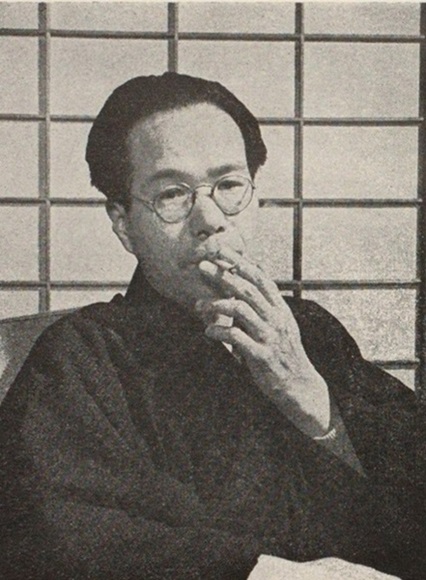COMMUNICATIONS
Thinking about History with Miki Kiyoshi
During my stay at the International Research Center for Japanese Studies, I am working on Miki Kiyoshi’s 三木清 (1897–1945) theories of history. Miki was a student of the philosopher Nishida Kitarō, and one of the foremost avant-garde intellectuals of early 20th century Japan. His astonishing productivity came to an early end with his tragic death in prison on 26 September 1945, only several weeks after the end of the Pacific War. Initially interested in literature, Miki discovered his passion for philosophy when he came across Nishida's “An Inquiry into the Good” (Zen no kenkyū 善の研究). From that point on, his life was devoted to philosophy.
After graduating Kyoto University, Miki was in Heidelberg and Marburg from 1922 to 1924, where he attended seminars by the likes of Martin Heidegger. After his return to Japan, he engaged with Marxism and developed an original humanistic interpretation of Marx. Miki’s writing took yet another turn during the 1930s, when he focused on philosophical anthropology, humanism and a theory of the imagination. Miki regarded imagination as an important faculty, one that bound together the emotional and intellectual aspects of human beings in a dialectical unity. Miki’s lifelong concern was to theoretically grasp the pre-conscious and non-rational components of human existence, and to balance them with the intellectual. His later writings on the philosophy of technology, and his posthumously published materials on the medieval Buddhist reformer Shinran, demonstrate his intellectual depth and thematic breadth.
Miki wrote most of the texts relevant to my study during the period between 1932’s Philosophy of History (Rekishi tetsugaku 歴史哲學), and The Logic of Imagination (Kōsō ryoku no ronri 構想力の論理 第一), which appeared in 1939. His interest in history goes back to his early years at university. At that time, he had studied the philosophy of Immanuel Kant, which resulted in his graduation thesis about Kant’s philosophy of history. In Germany, he came in contact with the most recent developments in continental European philosophy and moved his theory towards an interpretation of the existential historicity of human beings that owes much to Heidegger as well as to Marx. It was important to Miki to consider the actual social conditions under which people interact.
However, Miki was not an unproblematic intellectual. From 1938 to 1939, he was a member of the Shōwa Research Association (Shōwa kenkyūkai 昭和研究会), Konoe Fumimaro’s advisory council and think-tank. His writings show a strong tendency towards wartime propaganda and ultra-nationalism, which are difficult to reconcile with his otherwise noteworthy commitment to liberalism. This poses a challenge to the assessment of Miki's historical thought.
At Nichibunken, I benefit from the unique opportunity to study this exciting philosopher. My usual area of expertise is pre-modern Japanese intellectual history, in particular the political and religious ideas of the court nobility between the 11th and 14th century. With Miki, I am exploring a new field of research that helps me to understand the background of modern historical studies and discussions about history in Japan.
Back in Germany, I will miss the inspiration provided by the beautiful and quiet environment around the institute, and the convenient and easy access to Japanese sources and research studies. I often take the opportunity to wander through the library at Nichibunken; I like being surrounded by books and I get a lot of inspiration simply by reading the different titles I happen to come across. Sometimes, I discover some clues that help me with my present project. The friendly librarians are always a great help for me.

Miki Kiyoshi
Source: Portraits of Modern Japanese Historical Figures (https://www.ndl.go.jp/portrait/e/datas/6072/)




